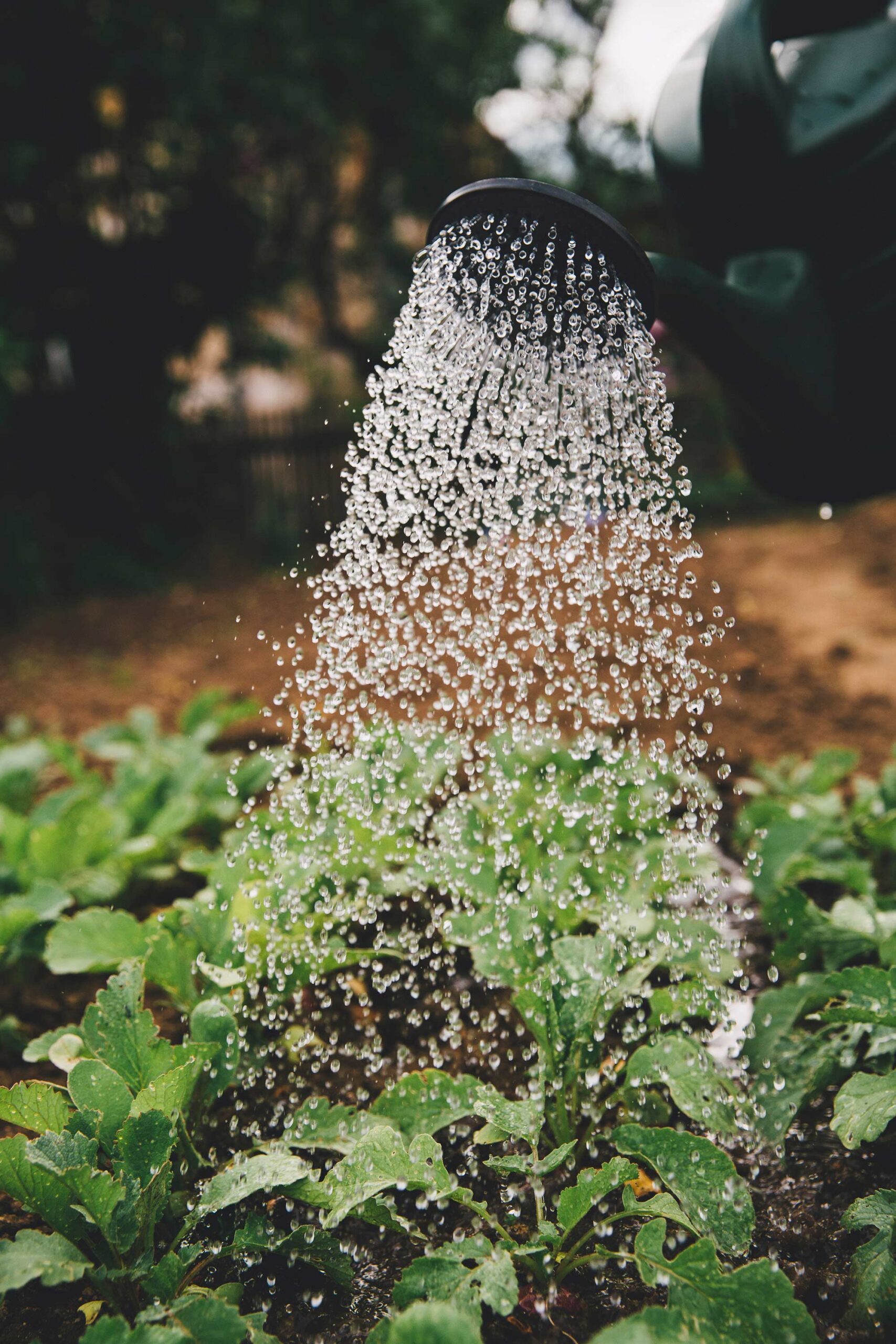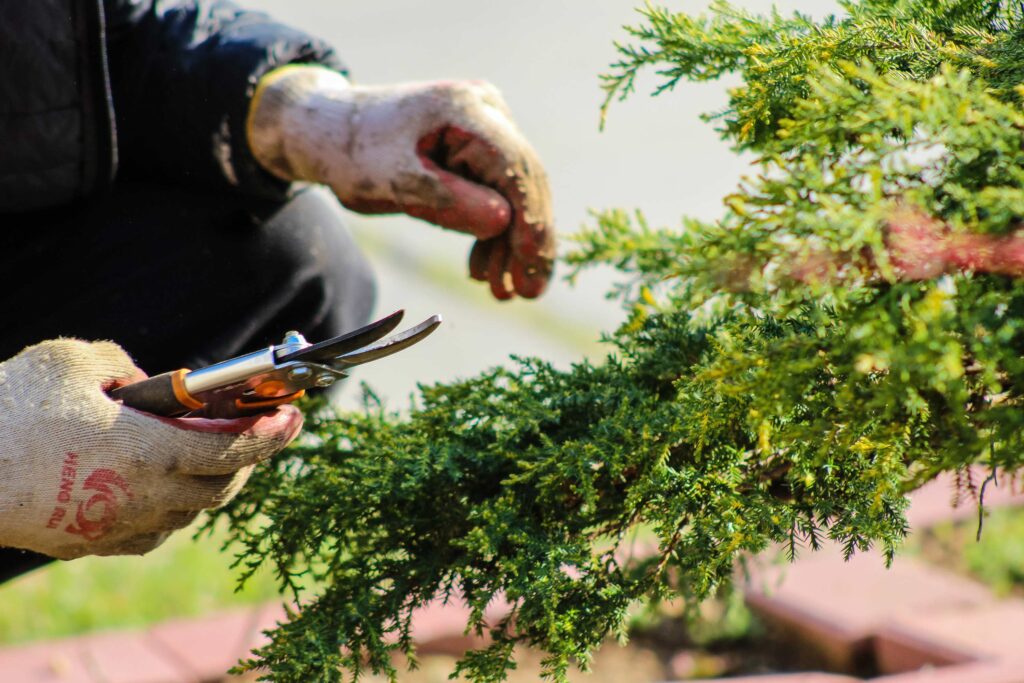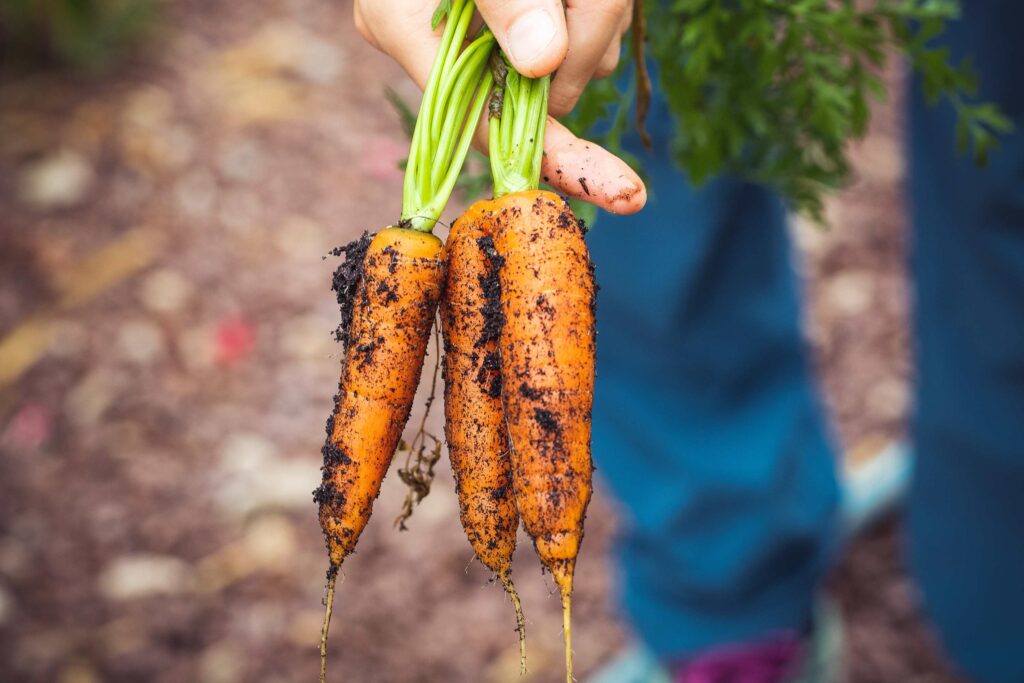Summer brings both opportunities and challenges for garden care. Mastering the art of tending to your plants during summer is the key to a beautiful, thriving garden.
Here are 10 essential tips to ensure your garden flourishes throughout the summer months.
Watering Wisely: Summer in Melbourne can be hot and dry, which makes proper hydration of your plants crucial. Frequency is surprisingly not the most important part of watering your garden, deep watering is. You want to ensure your plants are getting a deep watering, which encourages roots to reach further into the soil therefore creating a more robust and resilient root system. You need to ensure that water is penetrating at least 6 inches into the soil for most plants. Aim to water your garden in the early morning or late evening to minimise evaporation – ensuring you are really soaking the water in at the base of the plant rather than wetting the foliage, which can cause diseases or allow the sun to scorch the wet leaves, causing burns. You could also consider installing a drip irrigation system which is an effective way of efficient water distribution as it delivers water directly to the base of the plants, minimising wastage and the risk of fungal diseases that occur with overhead watering.

Mulching Magic: Mulch is the secret to helping your plants thrive during a scorching hot Melbourne summer. Applying a layer of organic mulch such as straw, bark or compost around your plants will help with retaining soil moisture, suppression of weeds and will enrich the soil as it decomposes. We all know Melbourne weather can be very temperamental and summer is no exception. Mulching your garden can help protect the soil from extreme temperature swings by acting as a buffer and insulating the soil. Mulching is a simple practice that goes a long way in protecting your garden from the harsh summer sun.
Soil Health: The foundation of a thriving garden is healthy soil. Melbourne has very diverse soil types, from clay based to sandy which means you need to do your research to understand your gardens soil composition. Conducting a soil test to assess its pH level, nutrient levels, and structure. With this information you can address specific soil deficiencies and create an ideal environment for your plants. Incorporating organic matter such as compost or manure to your garden ensures that the soil is well-nourished. This also helps to enhance water retention and provides essential nutrients to your plants by fostering a microbial community within the soil. Ensure you are regularly adding compost to your garden to replenish nutrients. Make sure you regularly check the soils moisture levels and adjust your watering schedule if required.
Shade Solutions: Strategically placed shade cloth or using natural elements such as tall plants or structures can act as a shield, protecting your garden from the intense summer sun. Protecting delicate plants from the harsh midday sun can prevent sunburn and stress.
Pruning for Perfection: The season of growth for plants is summer and proper pruning will ensure your plants flourish. Removing dead or diseased branches helps to promote air circulation and prevent the spread of diseases. Trim overgrown or dense foliage as it allows sunlight to penetrate to the inner branches, promoting well developed, strong stems whilst also maintaining a visually pleasing garden and encouraging new growth. Remove dead flowers to encourage continuous blooming, as it will redirect the plants energy back into new flower development.

Pest Patrol: The warmer weather is an open invitation for various pests to join the garden. Inspect your plants regularly, keeping an eye out for signs of infestation such as chewed leaves, distorted growth or discoloured leaves and take prompt action. Some natural remedies you can use are Neem Oil or introducing beneficial insects such as ladybugs, lacewings, and predatory beetles to the garden can help control aphids, mites, and other harmful insects without damaging your plants or the environment.
Fertilise Thoughtfully: Choose a balanced fertiliser with the essential nutrients of nitrogen, phosphorus and potassium that is best suited to your gardens soil composition and plants. Look for fertilisers formulated for flowering or fruiting plants during Summer to support robust development. Consider a combination of organic and synthetic fertilisers as both have their benefits. Organic fertiliser such as compost, manure or fish emulsion fertilisers contribute to soil health and microbial activity, whereas synthetic fertilisers offer exact nutrient ratios and rapid absorption. Always apply fertiliser according to the manufacturer recommendations as over-fertilising can lead to imbalances of nutrients and cause harm to your plants. Opt for a slow-release fertiliser as it would provide the soil with a steady supply of nutrients over a longer period, ensuring a consistent and sustained nourishment for your garden over summer.
Choose Heat-Tolerant Plants: When planning out, or adding to your garden, opt for plant varieties that thrive in Melbourne’s summer heat. Native plants, or those adapted to our region are more likely to withstand challenging weather conditions and contribute to the overall ecological balance in your garden. Consider drought-resistant plants such as succulents or ornamental grasses that will support a sustainable garden and minimise your water usage as they store water in their tissues.
Harvest time: Harvesting your gardens ripe, summer fruits and vegetables regularly not only allows you to enjoy fresh produce, but it also encourages the plants to keep producing. Share your harvest with family and friends or get creative with some new recipes to make the most of your homegrown haul.

Create a relaxing oasis: Adding comfortable seating and outdoor lighting for those balmy evenings will help create a beautiful, relaxing space to unwind and take in the beauty of your garden.
By embracing these tips, your garden should absolutely thrive throughout the warmer summer weather. Reap the rewards of your efforts in the garden as you soak up the beauty of a lush, vibrant garden during the sunny season. Happy gardening!

